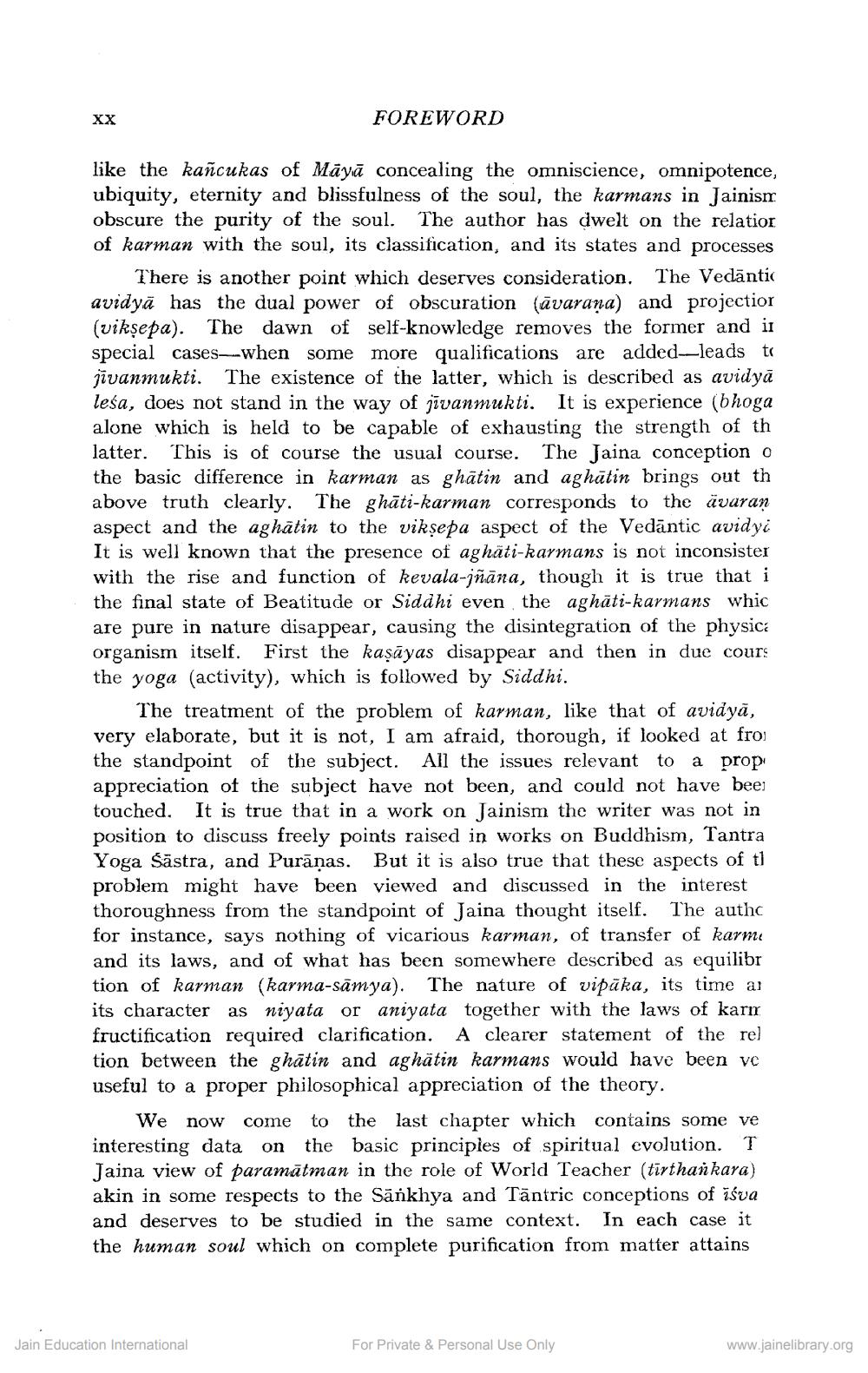________________
XX
FOREWORD
like the kañcukas of Māyā concealing the omniscience, omnipotence, ubiquity, eternity and blissfulness of the soul, the karmans in Jainism. obscure the purity of the soul. The author has dwelt on the relatior. of karman with the soul, its classification, and its states and processes
There is another point which deserves consideration, The Vedāntic avidyā has the dual power of obscuration (āvarana) and projectior (viksepa). The dawn of self-knowledge removes the former and in special cases when some more qualifications are added-leads to jivanmukti. The existence of the latter, which is described as avidyā leśa, does not stand in the way of jīvanmukti. It is experience (bhoga alone which is held to be capable of exhausting the strength of th latter. This is of course the usual course. The Jaina conception o the basic difference in karman as ghātin and aghātin brings out th above truth clearly. The ghāti-karman corresponds to the ävaran aspect and the aghātin to the viksepa aspect of the Vedāntic avidyi It is well known that the presence of aghāti-karmans is not inconsister with the rise and function of kevala-jñāna, though it is true that i the final state of Beatitude or Siddhi even the aghāti-karmans whic are pure in nature disappear, causing the disintegration of the physica organism itself. First the kasāyas disappear and then in due cours the yoga (activity), which is followed by Siddhi.
The treatment of the problem of karman, like that of avidyā, very elaborate, but it is not, I am afraid, thorough, if looked at fro the standpoint of the subject. All the issues relevant to a prop appreciation of the subject have not been, and could not have beei touched. It is true that in a work on Jainism the writer was not in position to discuss freely points raised in works on Buddhism, Tantra Yoga Śästra, and Purānas. But it is also true that these aspects of t1 problem might have been viewed and discussed in the interest thoroughness from the standpoint of Jaina thought itself. The autho for instance, says nothing of vicarious karman, of transfer of karme and its laws, and of what has been somewhere described as equilibr tion of karman (karma-samya). The nature of vipāka, its time ai its character as niyata or aniyata together with the laws of karm fructification required clarification. A clearer statement of the rel tion between the ghātin and aghātin karmans would have been ve useful to a proper philosophical appreciation of the theory.
We now come to the last chapter which contains some ve interesting data on the basic principles of spiritual evolution. T Jaina view of paramātman in the role of World Teacher (tirthai kara) akin in some respects to the Sankhya and Tantric conceptions of iśva and deserves to be studied in the same context. In each case it the human soul which on complete purification from matter attains
Jain Education International
For Private & Personal Use Only
www.jainelibrary.org




